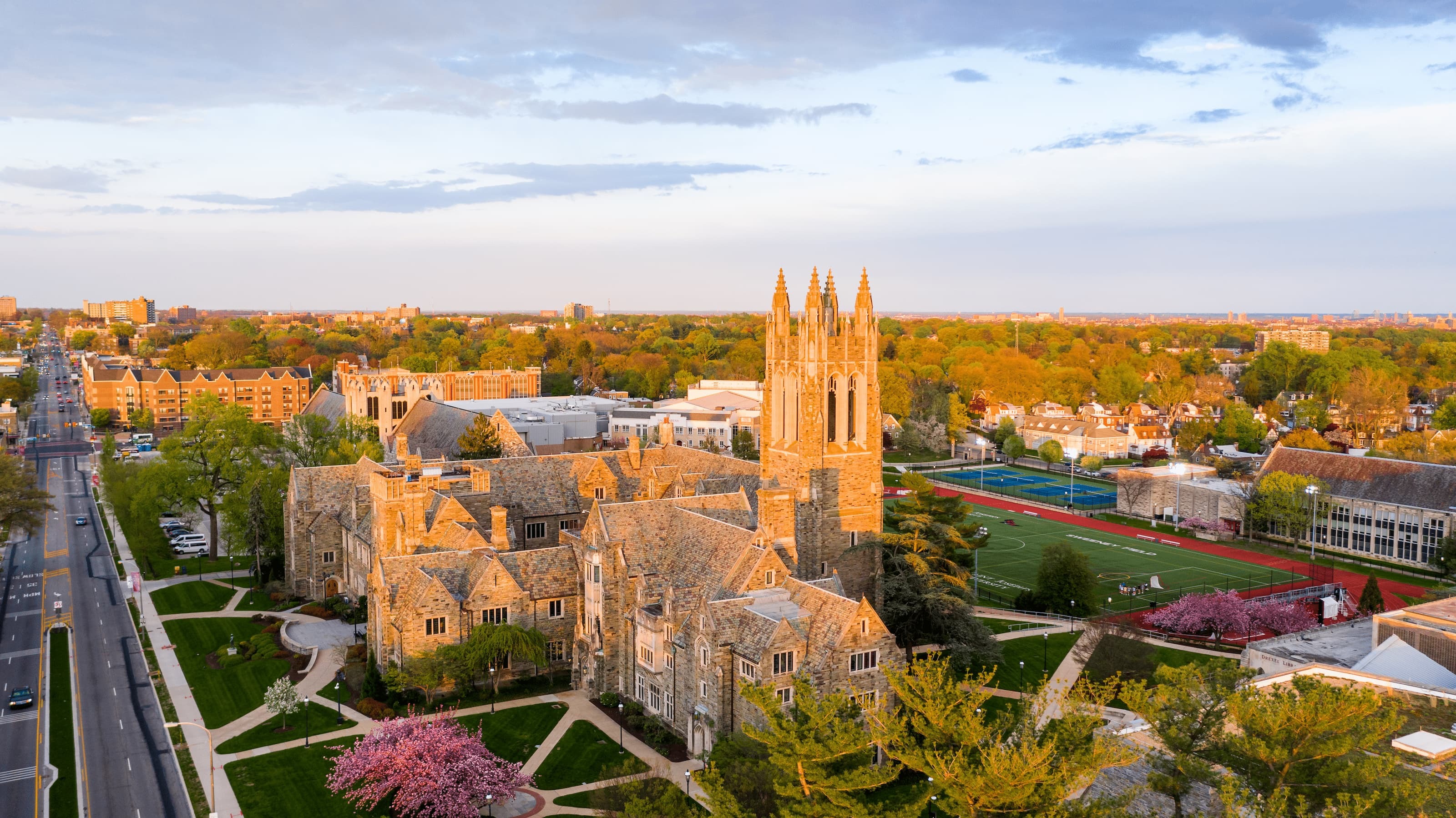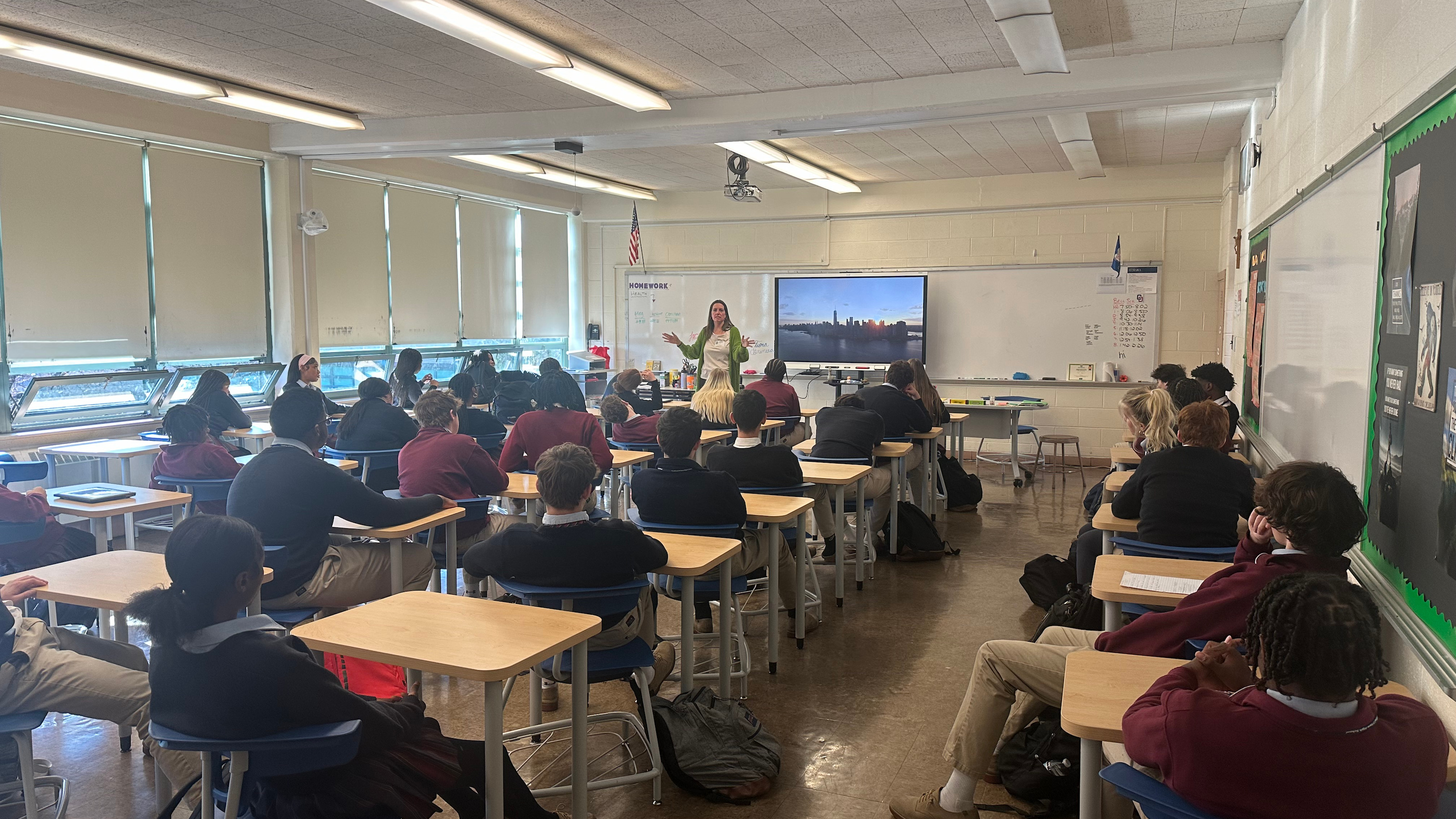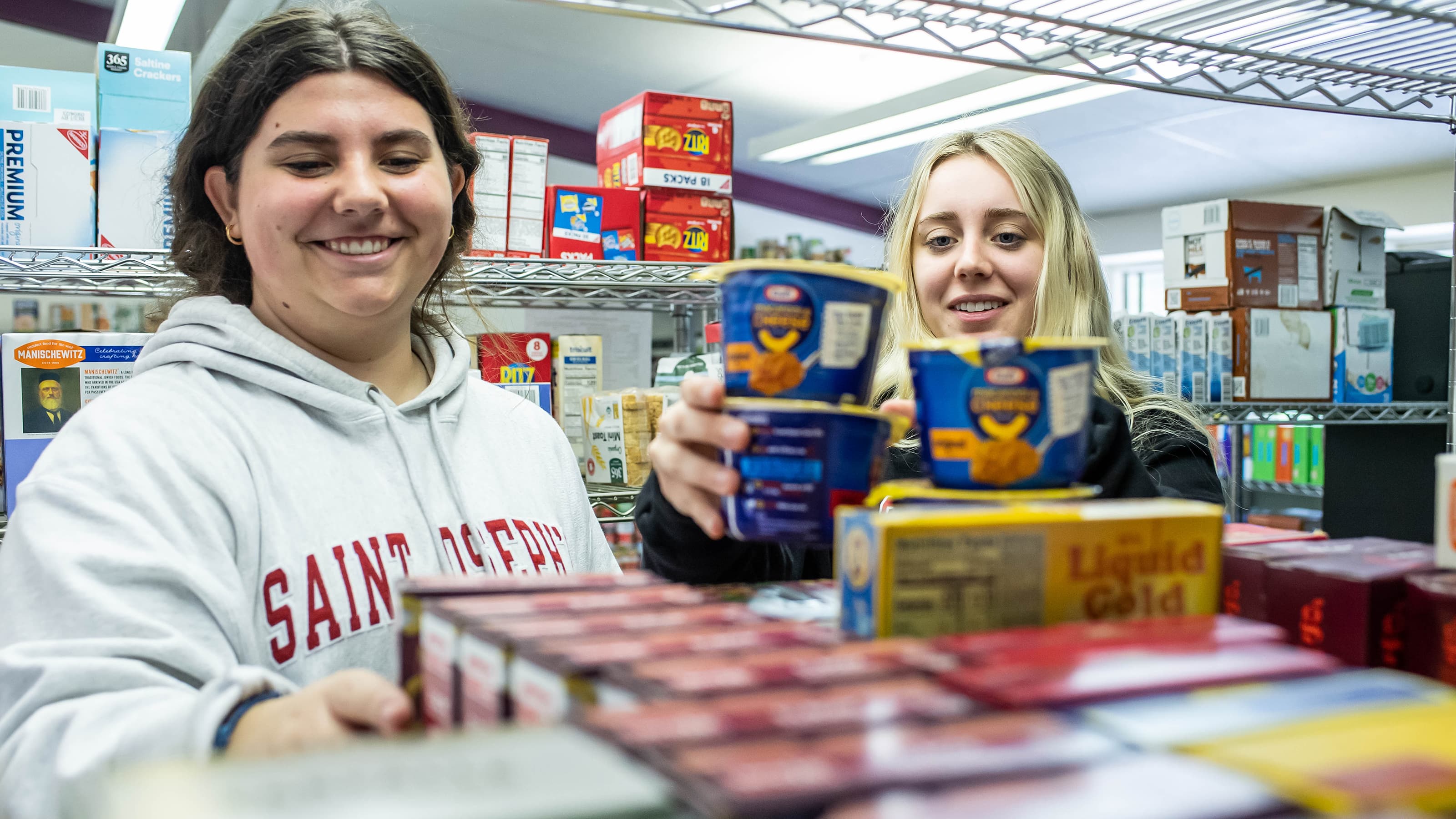Addressing Global Period Poverty
The Institute of Clinical Bioethics is working to increase access to sustainable period products in rural El Salvador.
 Members of the Arcatao community, partners of the Institute of Clinical Bioethics, in El Salvador
Members of the Arcatao community, partners of the Institute of Clinical Bioethics, in El Salvador
What began as a final project idea for Santino Diana, BS ’26, has become an international philanthropic partnership through the work of the Institute of Clinical Bioethics (ICB) at Saint Joseph’s University.
Diana works alongside ICB graduate assistant Makenna Thorpe, MBA ’26, and a team of undergraduates on the organization’s period poverty project, an effort aimed at addressing menstrual inequities in rural El Salvador by providing sustainable period underwear to women and girls.
The nonprofit Period Poverty estimates that nearly a quarter of women worldwide struggle to access menstrual products, leading many to miss time at school or work. ICB Director Peter A. Clark, S.J., BA ’75, PhD, taught Diana and his groupmates in his Just Healthcare in Developing Nations course in the fall and saw the potential for the project to make a real impact.
“This was brought to the ICB as a new initiative because it incorporates the Jesuit values of the University: men and women for and with one another, care for the most vulnerable populations and seeing God in all things,” Clark says. “The fellows in the ICB not only talk about Jesuit values, but they also put these values into action.”
Diana and Thorpe are currently in the process of solidifying their partnership with El Salvador’s Arcatao community and FUDEMS, a local nonprofit, and consulting with a wide range of volunteers, from fashion designers to medical students, to create a product that is sustainable, comfortable, and aligns with cultural preferences in El Salvador.
“After meeting with people in the community, we learned that there is a stigma against tampons and it would be more culturally accessible and acceptable to go the route of period underwear,” Thorpe explains. “It’s also more sustainable, as they can wash and reuse the products, and we’ve worked to make sure they have the resources to clean them.”
“The ICB is always working to benefit a community other than our own, no matter their background or how far away they are. It’s a great opportunity to work with a community, break those barriers and connect with them through this work.”
Santino Diana, BS ’26
Undergraduate Research Fellow at the Institute of Clinical BioethicsKeeping in mind both the sustainability and longevity of the project, the underwear will be made by local seamstresses in Arcatao who will be provided a stipend for their work. Diana and Thorpe hope this will help stimulate the economy and establish deeper trust, as the products will be made by familiar community figures.
“Eventually everyone on the current team will graduate, and we hope someone else would adopt the project, but even if they don’t we want to give the community the skills and resources to be able to do it on their own,” Thorpe says.
Diana and Thorpe have had the unique opportunity to see the project from the idea phase to implementation and have learned about the collaborative research process along the way.
“I was definitely a little apprehensive to propose an entirely new project to FUDEMS, especially one that didn’t have much footing yet, but it was clear right away that they were excited and there was a real need in the community,” Thorpe says.
Diana has enjoyed the process of partnering with diverse experts to make the best possible product.
“When we designed the original product, we had no idea how many little things went into developing a product, and it’s been a big lesson in communication,” Diana says. “In a single conversation with the fashion designers, they had 10 recommendations for just one part of the layering of the product. I really give credit to everyone involved for how much they’ve been willing to give up for the project.”
The team members are proud of their work and excited for what’s to come, from continuing to tweak the design to implementing education programs to teach young girls about menstruation.
“The ICB is always working to benefit a community other than our own, no matter their background or how far away they are,” Diana says. “It’s a great opportunity to work with a community, break those barriers and connect with them through this work.”



